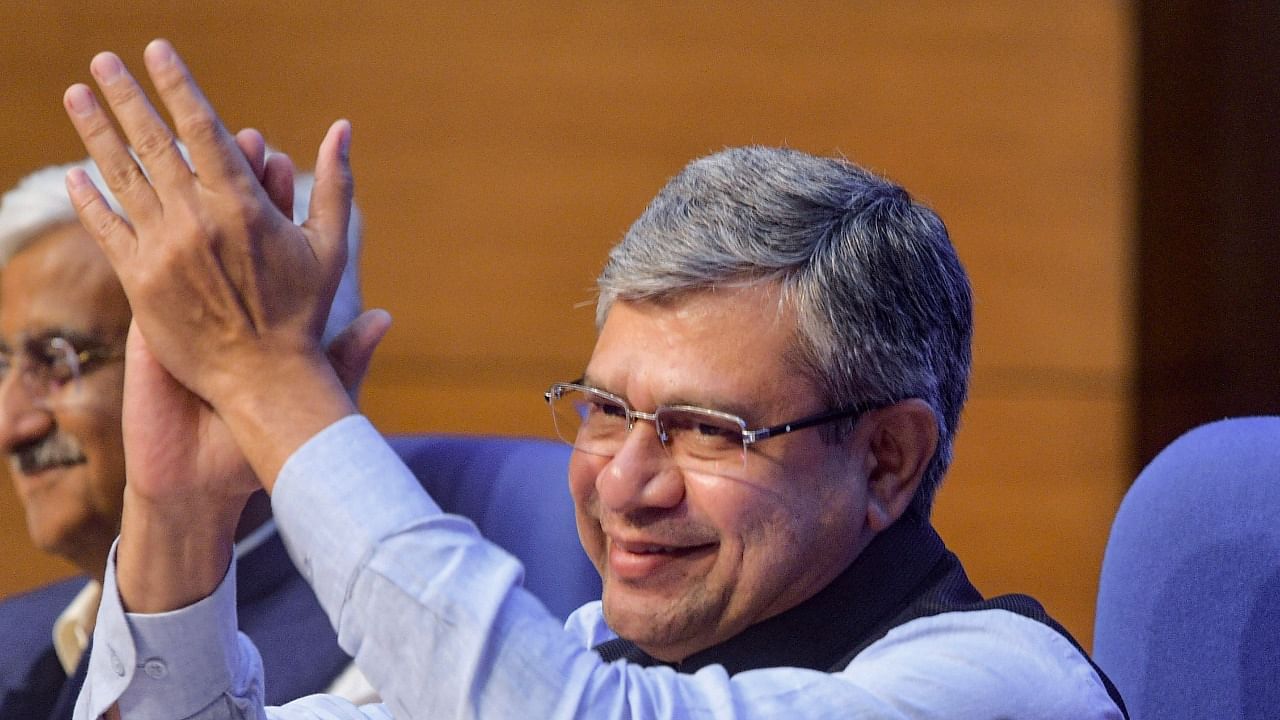
The telecom relief package announced by the government aims to make the sector robust, and will, in turn, have a "good impact" on the North Eastern States, including Meghalaya, which needs stronger connectivity and IT services, Union Minister Ashwini Vaishnaw said on Friday.
Vaishnaw, Minister for Communications and IT, and Conrad Sangma, Chief Minister of Meghalaya jointly launched Meghalaya Enterprise Architecture Project (MeghEA). The project aims to improve service delivery and governance for people using the power of digital technologies.
Speaking at a virtual briefing, Vaishnaw said: "The telecom reforms that we have done will have a very good impact on the North Eastern States, especially in Meghalaya...the sector has to become robust and healthy to be able to reach out to places like Meghalaya which really need much better connectivity...which really needs much better IT services."
The MeghEA initiative is spread across six pillars of governance, human resources, entrepreneurship, primary sector, infrastructure, and environment, and envisioned to make Meghalaya a high-income state by 2030, an official release said.
Vaishnaw also launched Phase II of Visvesvaraya PhD Scheme to promote research in 42 emerging technologies in Electronics System Design and Manufacturing (ESDM) and Information Technology (IT)/ IT Enabled Services(ITES).
The results of the first phase of the scheme have been encouraging with 63 global patents and the publication of thousands of research papers in reputed international journals.
The minister said that time has now come to scale up the scheme massively, with the advent of high-tech industries especially semiconductor manufacturing and telecom manufacturing. India will soon have its own 4G core network and 5G core network, he said.
Visvesvaraya PhD Scheme was initiated by the Ministry of Electronics and Information Technology (MeitY) in 2014 with the approval of the Cabinet Committee on Economic Affairs (CCEA) with an aim to enhance the number of PhDs in ESDM and IT/ITES sectors.
PhD seats were allocated to 97 institutions (IITs, NITs, Central and State Universities) in 25 states and 4 Union Territories, a separate statement said.
"At present 492 full-time and 268 part-time PhD fellows are pursuing while 422 full time and 43 part time PhD have submitted thesis or completed PhD," the statement said.
Phase II of the scheme aims to support 1000 full-time PhD candidates, 150 part-time PhD candidates, 50 young faculty research fellowships, and 225 post-doctoral fellowships.